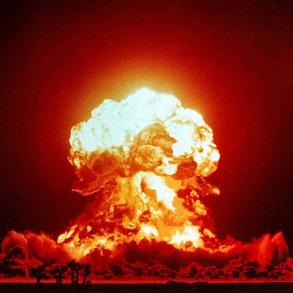Russia`s Military Doctrine: Nukes as Most Weighty Argument in Strategic Deterrence
"Moscow military doctrine relies on the likelihood of large-scale wars"

Secretary of the Security Council of Russia, Nikolai Patrushev, says Russia will soon unveil its draft military doctrine and submit it to the President for consideration till the end of the current year. The statement proves that Russia is finally close to having its military doctrine which would define all the threats the country is facing nowadays and the ways to neutralize them.
The military doctrine has been considered by its authors (an inter-agency working group involves state officials, members of the parliament and the Federation Council, the President’s plenipotentiaries, academicians, experts and public figures) as a set of core documents defining a common mechanism of ensuring national security.
In May 2009 Dmitry Medvedev approved a brand new document-the Russian National Security Strategy until 2020. Among the major strategic national priorities- alongside with state and public security- the notion of national defense is mentioned, its goals primarily achieved through the use of force. Quotation: “Military security is ensured through the development of the state military system and defence potential, and also by allocating enough financial and other resources for the implementation of these goals”.
Thus, the logics of the national security strategy requires a detailed analysis of the whole range of issues related with military security-after all, this is what makes the core of the military doctrine.
This doctrine is not something new for modern Russia. This document was first unveiled in 1993. Its authors insisted that any kind of war conflicts involving the Russian army were inadmissible, which demonstrated in full the illusions of the Yeltsin rule. The Kremlin had to learn two bitter lessons afterwards: two Chechen campaigns and NATO`s war against Yugoslavia.
Russia`s latest version of the military doctrine was released in 2000. It relies on the likelihood of large-scale conflicts and wars Russia might be involved in, and also allows the use of nuclear weapons to repel aggression if an enemy applies conventional weapons in a large-scale war.
Undoubtedly, this is a more realistic view. However, some disadvantages became evident with time. For example, this version of the doctrine focuses mainly on the issues of military security, points to military threats and how to counteract them using force. But we should be aware that as a result of radical changes there also appeared such threats that could be implemented through non-military means. So, military security must be ensured not only by the army but also through the use of economic, diplomatic and other resources.
The latest doctrine differs from its previous versions. It mentions those external and internal threats that had not been taken into consideration before, including a war for energy resources, the proliferation of the weapons of mass destruction, international terrorism, territorial claims, ethnic conflicts and separatism. The new doctrine also pays attention to the use of high-precision weapons, unmanned aircraft, autonomous underwater vehicles, biocybernetic system, e.t.c.
Prevention of any military conflicts is proclaimed a high priority for Russia. At the same time, it says that Russia sees it legitimate to use force to repel aggression, protect its allies, take part in the peacekeeping operations sanctioned by the UN Security Council and other organizations dealing with collective security. The doctrine also quotes the amendments made in October to the Law on Defence which stipulate the use of military force abroad.
What is especially important about Russia`s new military doctrine is that it allows to use nuclear weapons to repel aggression if an enemy applies conventional weapons in a large-scale war. If the national security happens to face a serious threat, Russia does not rule out a possibility of a nuclear attack, including a preemptive one, against an aggressor in either large-scale or regional war. Actually, we see that Russia has lowered a threshold of nuclear deterrence.
Thus, Russia`s nuclear strategy starts to resemble more that of the United States. I would even assume that the aforementioned amendments to the doctrine are first of all addressed to Washington after it had made a few steps to impel Moscow to reduce its nuclear arsenal and at the same time ensured its strategic superiority with the help of high-precision weapons, including naval cruise missiles. In other words, the US has been trying to undermine Russia`s ability for strategic deterrence.
So, ahead of the final round of Russo-US talks on a new START treaty, Moscow demonstrates it has no intention to reject nukes as one of the most important means of strategic deterrence. That is why the Security Council of Russia has been taking every effort to complete the work on the new military doctrine by the time the new START treaty is ratified.

